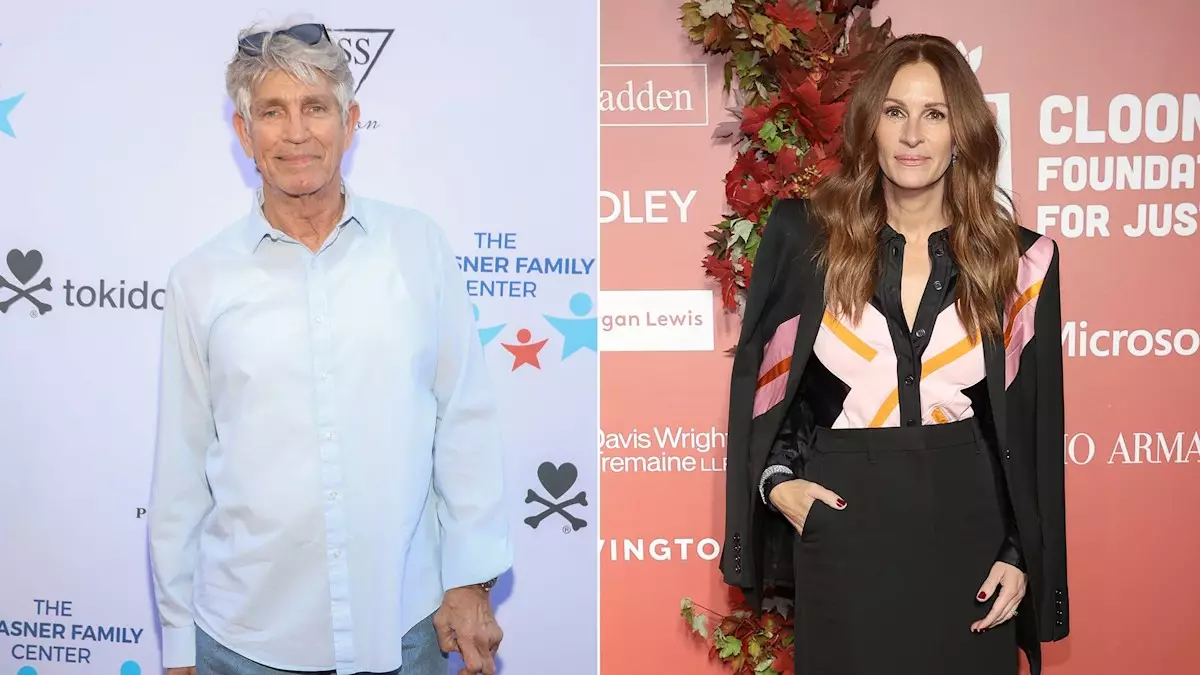In a revelation that highlights the often tumultuous nature of family dynamics within the glitzy backdrop of Hollywood, Eric Roberts, brother of acclaimed actress Julia Roberts, has issued a public apology to his sister. This significant gesture comes after Eric previously expressed in interviews that he was a pivotal force behind Julia’s successful ascent to fame. His new memoir, *Runaway Train: Or, the Story of My Life So Far*, delves into the complexities of their fractured relationship and seeks to clarify misunderstandings that have lingered between the two for over a decade.
Eric’s earlier remarks, which claimed that Julia’s success was contingent on his influence, have not only made headlines but evidently strained their relationship. He acknowledges in the memoir the folly of his past statements, expressing remorse for his belief that he deserved credit for Julia’s career. “One of the things I’d like to apologize for…is for publicly saying…’If it wasn’t for me, there would be no Julia Roberts.’ That’s not only unfortunate but it’s also untrue,” he candidly articulates. Such admissions illustrate a brother’s introspection, grappling with the consequences of ego and pride that can sometimes overshadow familial bonds.
The Ripple Effects of Personal Struggles
Further complicating their relationship are Eric’s reflections on family trauma, particularly his strained relationship with their mother, Betty Lou Bredemus. Eric admits that his reckless claims about their mother being deceased had detrimental effects on both Julia and their sister, Lisa. “It was the great undoing of my relationship with my sisters,” he states, underscoring a realization many fail to recognize: the long-lasting reverberations of personal struggles can deeply affect not just the individual but their loved ones as well.
Eric’s past involvement with drugs and the destructive lifestyle that ensued likely exacerbated their familial issues. He characterizes this tumultuous period not as a falling-out but as a complex web of love intermingled with pain and turmoil. The acknowledgment of his behavior being “complainy, blamey, unable to enjoy enjoyment” reflects a profound understanding of how toxic attitudes can invade even the closest relationships. It shows that in the world of fame and fortune, personal demons can overshadow familial connections, which, in essence, are often the most crucial.
The turning point for their relationship appears to have emerged in 2004, coinciding with a significant life change for Julia—becoming a mother. This development perhaps symbolizes a moment of reconciliation, illustrating how shared experiences, especially monumental ones like parenthood, can pave the way for healing and deeper understanding. Eric’s sentiment of loving his sister remains palpable, and he highlights the importance of mutual respect regarding their individual lives and careers.
By stating, “I love knowing my sister,” Eric conveys not just affection but a sense of pride in her achievements, possibly finding solace in their reestablished bond despite their differences. This insight demonstrates that the intricate dance between sibling rivalry and support is heightened in the entertainment industry, where pressures and expectations can both unite and divide.
The Role of Public Perception
The public nature of Eric’s apologies also raises questions about how celebrity status can influence family matters. The media storm surrounding the Roberts siblings showcases how personal conflicts can be magnified under the glare of public scrutiny, compelling individuals to navigate their relationships while being publicly observed. In a world that often seeks sensationalism over sincerity, Eric’s decision to address his past missteps in a memoir is an act that could resonate with many readers, allowing them to see behind the curtains of celebrity life.
This admission of fault not only highlights Eric’s growth but is a testament to the complexities of navigating familial relationships in the spotlight. Sibling relationships can be multi-faceted, filled with rivalry, love, admiration, and, at times, estrangement, all of which are amplified within the environment of fame.
Eric Roberts’ heartfelt apology serves as a poignant reminder that reconciliation is possible even in the facades of fame. As they mend their bond, their story reflects a universal truth: that underlying the glitz and glamour, every family faces its trials. Their journey portrays a narrative of understanding, healing, and the enduring strength of family ties, speaking volumes about the resilience of love and the possibility of redemption, regardless of the past’s shadows.

